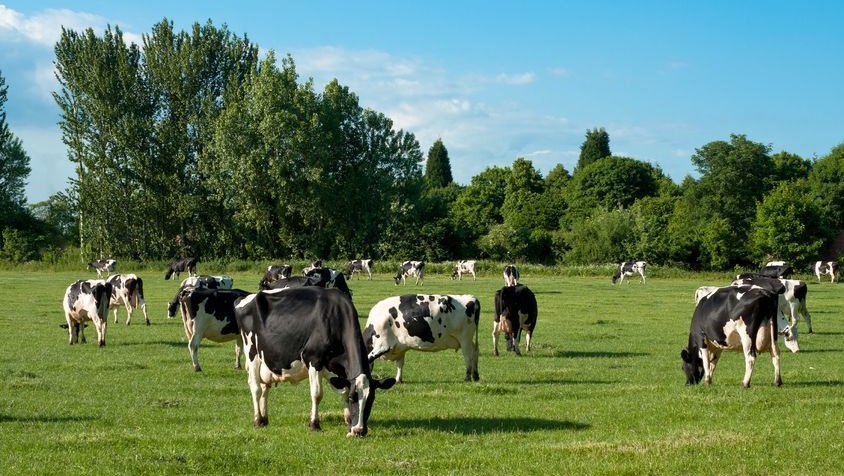
Union leaders in Wales are hoping that dairy farmers will 'club together' in the form of Dairy Producer Organisations (DPO) to negotiate better prices for their milk.
A DPO is an organisation with one or more aims, formed on the initiative of a group of farmers, usually on small family farms.
A DPO's aims can include negotiating contracts for the delivery of raw milk on behalf of its members.
Though they are popular throughout Europe, there is only one in England and one in Scotland.
They must be formed from a minimum of 10 dairy producers (all of them must be separate legal entities) in the European Union (EU) or produce 6 million litres a year (2 producers needed) or both.
Aled Jones, chairman of NFU Cymru's dairy board, told the BBC: "At the moment we deal on an individual basis with the processor but I think long term we are far stronger if we speak with one voice and have that cooperation and attitude of mind.
"Nearly half of Welsh milk is carted out of Wales to be processed and that puts us in a weak position. We saw that last year when there was an oversupply of milk and farmers in West Wales were in danger of not having a buyer for their milk.
"Looking forward we must try and attract new investment or increased processing in Wales. And obviously, to do that you need to work in a professional manner."
'Transparency and efficiency'
DPO's have the potential to optimise production costs and operating margins through shared knowledge.
Members of the Milk Supply Association (MSA) agreed to complete the process of registering with the Rural Payments Agency to form the first EU Dairy Producer Organisation (DPO) in Scotland in 2015.
James Graham, Chief Executive of SAOS said: "Dairy POs were introduced to improve both transparency and efficiency in the supply chain.
"Dairy farmers and milk processors are entirely inter-dependent and the formation of a PO enables a properly functioning interface amongst them. I expect to see several more follow the MSA’s example, and I hope their move provides strong encouragement."
Scottish MEP and agriculture committee member Alyn Smith said: "The EU Milk Package states that member states must recognise producer organisations for the planning of production and co-ordination of supply.
"Formed by producers, a producer organisation can optimise production costs, stabilise producer prices, and respond faster to changes in the market. For example, Fresh Growers brought Chantenay carrots back to the UK and now supplies more than 90% of the domestic Chantenay market.”
"Farmers have traditionally eschewed collective action but attitudes have to change in this world of the modern supply chain and the retail juggernauts.
"I hope to see more DPOs popping up all over Scotland to counter the imbalance of power in the food supply chain, and I will do everything I can to support them in the European Parliament and at home."
